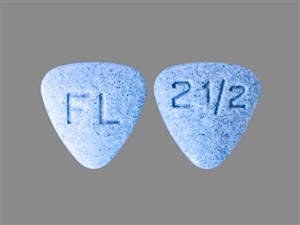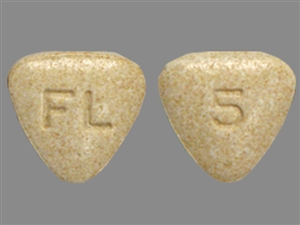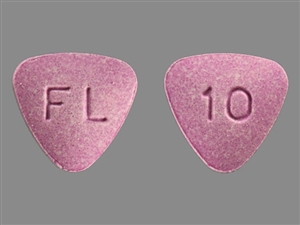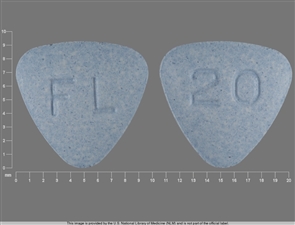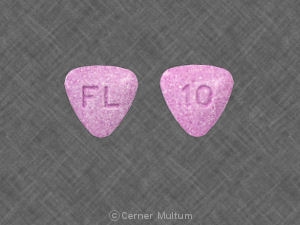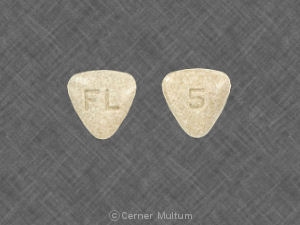What is the most important information I should know about nebivolol?
Do not skip doses or stop taking nebivolol without first talking to your doctor.
What is nebivolol?
Nebivolol is a beta-blocker that is used to treat hypertension (high blood pressure). Lowering blood pressure may lower your risk of a stroke or heart attack.
Nebivolol may also be used for purposes not listed in this medication guide.
What should I discuss with my healthcare provider before taking nebivolol?
You should not take nebivolol if you are allergic to it, or if you have:
- a serious heart condition such as heart failure, "AV block" (2nd or 3rd degree), or sick sinus syndrome (unless you have a pacemaker);
- very slow heartbeats;
- severe liver disease; or
- if your heart cannot pump blood properly.
Tell your doctor if you have ever had:
- asthma, bronchitis, emphysema;
- a heart attack;
- problems with circulation (especially in your feet and legs);
- diabetes (taking nebivolol can make it harder for you to tell when you have low blood sugar);
- a thyroid disorder;
- liver or kidney disease;
- allergies; or
- pheochromocytoma (tumor of the adrenal gland).
Tell your doctor if you are pregnant or plan to become pregnant. It is not known whether nebivolol will harm an unborn baby. However, having high blood pressure during pregnancy may cause complications such as diabetes or eclampsia (dangerously high blood pressure that can lead to medical problems in both mother and baby). The benefit of treating hypertension may outweigh any risks to the baby.
You should not breastfeed while using nebivolol.
How should I take nebivolol?
Follow all directions on your prescription label and read all medication guides or instruction sheets. Your doctor may occasionally change your dose. Use the medicine exactly as directed.
You may take nebivolol with or without food.
Your blood pressure will need to be checked often.
If you need surgery, tell the surgeon ahead of time that you are using nebivolol.
You should not skip doses or stop using nebivolol suddenly. Stopping suddenly may make your condition worse or cause serious heart problems, including heart attack. Follow your doctor's instructions about tapering your dose.
Keep using this medicine as directed, even if you feel well. High blood pressure often has no symptoms. You may need to use blood pressure medicine for the rest of your life.
Store at room temperature away from moisture and heat.
What happens if I miss a dose?
Take the medicine as soon as you can, but skip the missed dose if it is almost time for your next dose. Do not take two doses at one time.
What happens if I overdose?
Seek emergency medical attention or call the Poison Help line at 1-800-222-1222.
Overdose symptoms may include slow heart rate, dizziness, vomiting, trouble breathing, or feeling like you might pass out.
What should I avoid while taking nebivolol?
Avoid driving or hazardous activity until you know how this medicine will affect you. Your reactions could be impaired.
What are the possible side effects of nebivolol?
Get emergency medical help if you have signs of an allergic reaction: hives; difficult breathing; swelling of your face, lips, tongue, or throat.
Call your doctor at once if you have:
- a light-headed feeling, like you might pass out;
- rapid weight gain;
- shortness of breath;
- slow or uneven heartbeats; or
- numbness or cold feeling in your hands and feet.
Common side effects may include:
- dizziness;
- swelling in your legs;
- slow heartbeats;
- tiredness; or
- headache.
This is not a complete list of side effects and others may occur. Call your doctor for medical advice about side effects. You may report side effects to FDA at 1-800-FDA-1088.
What other drugs will affect nebivolol?
Sometimes it is not safe to use certain medications at the same time. Some drugs can affect your blood levels of other drugs you take, which may increase side effects or make the medications less effective.
Many drugs can affect nebivolol. This includes prescription and over-the-counter medicines, vitamins, and herbal products. Not all possible interactions are listed here. Tell your doctor about all your current medicines and any medicine you start or stop using.
Where can I get more information?
Your pharmacist can provide more information about nebivolol.
Remember, keep this and all other medicines out of the reach of children, never share your medicines with others, and use this medication only for the indication prescribed.
Every effort has been made to ensure that the information provided by Cerner Multum, Inc. ('Multum') is accurate, up-to-date, and complete, but no guarantee is made to that effect. Drug information contained herein may be time sensitive. Multum information has been compiled for use by healthcare practitioners and consumers in the United States and therefore Multum does not warrant that uses outside of the United States are appropriate, unless specifically indicated otherwise. Multum's drug information does not endorse drugs, diagnose patients or recommend therapy. Multum's drug information is an informational resource designed to assist licensed healthcare practitioners in caring for their patients and/or to serve consumers viewing this service as a supplement to, and not a substitute for, the expertise, skill, knowledge and judgment of healthcare practitioners. The absence of a warning for a given drug or drug combination in no way should be construed to indicate that the drug or drug combination is safe, effective or appropriate for any given patient. Multum does not assume any responsibility for any aspect of healthcare administered with the aid of information Multum provides. The information contained herein is not intended to cover all possible uses, directions, precautions, warnings, drug interactions, allergic reactions, or adverse effects. If you have questions about the drugs you are taking, check with your doctor, nurse or pharmacist.
Copyright 1996-2020 Cerner Multum, Inc. Version: 5.01. Revision date: 3/26/2019.
